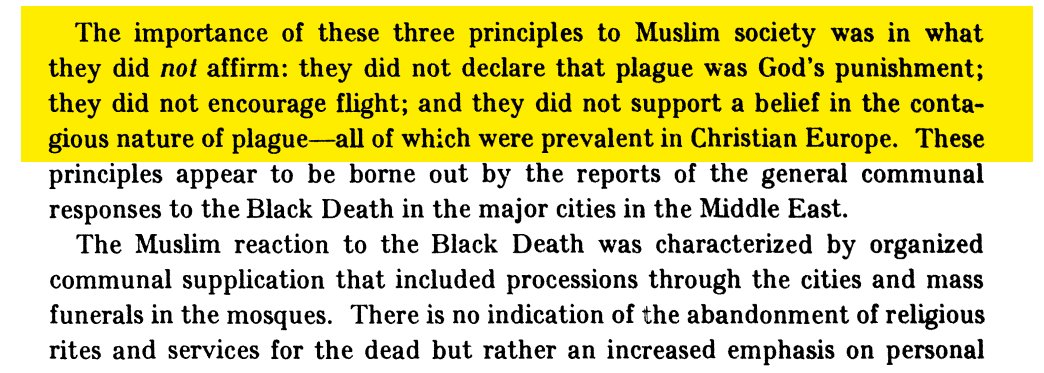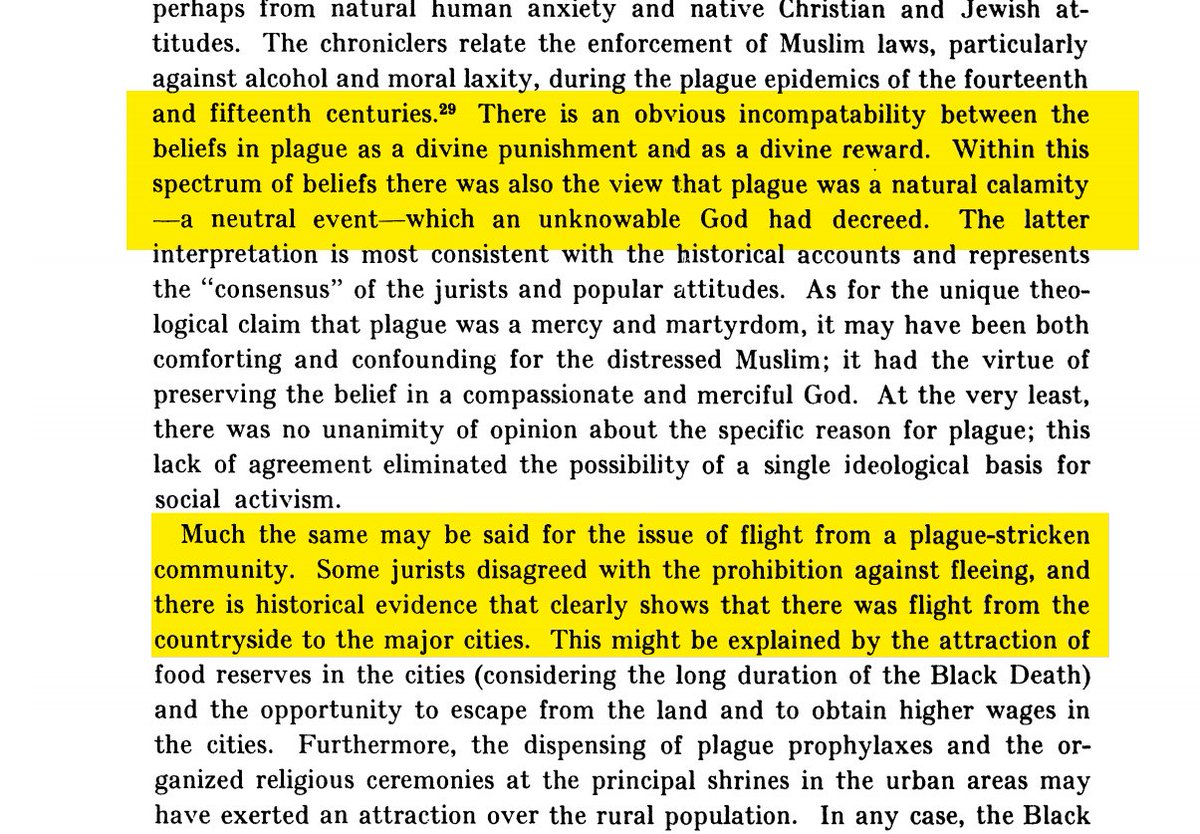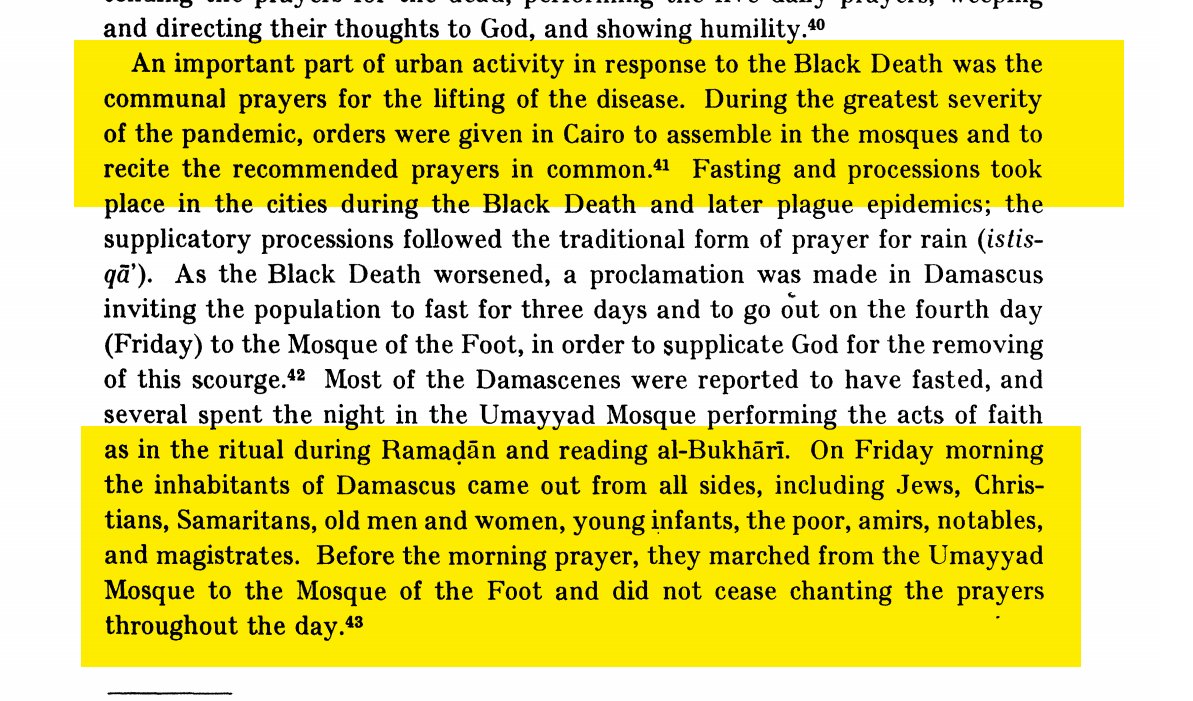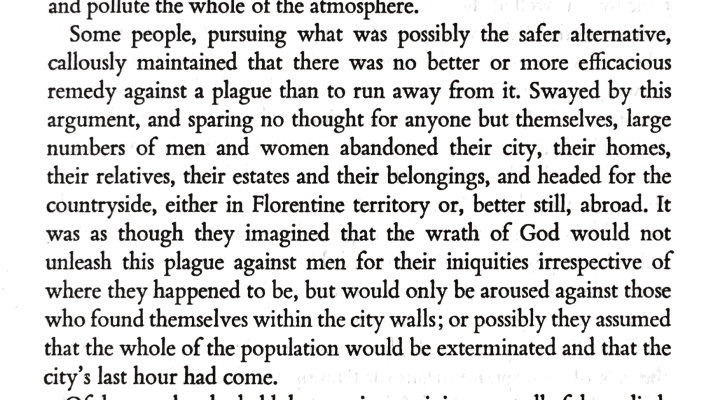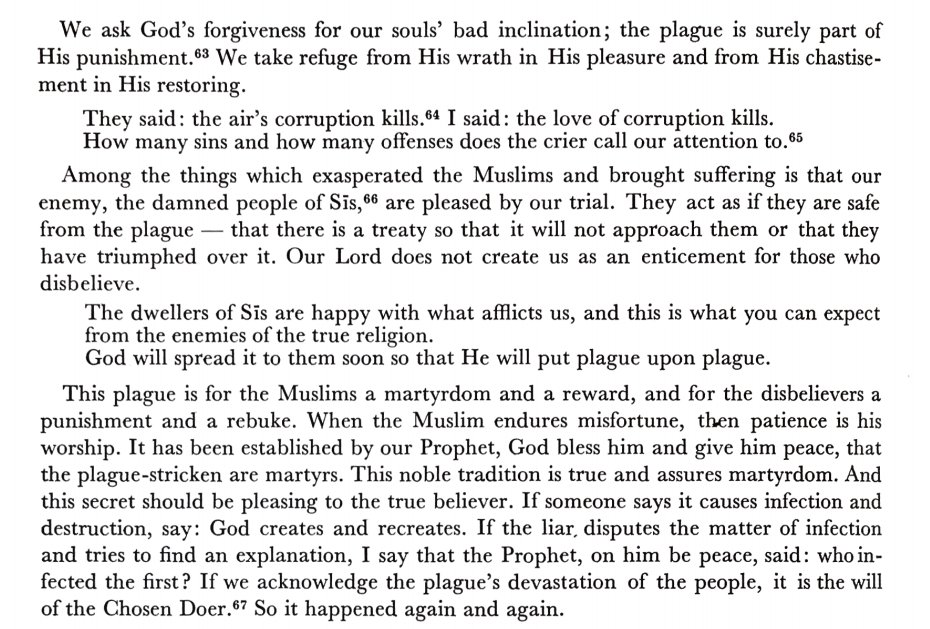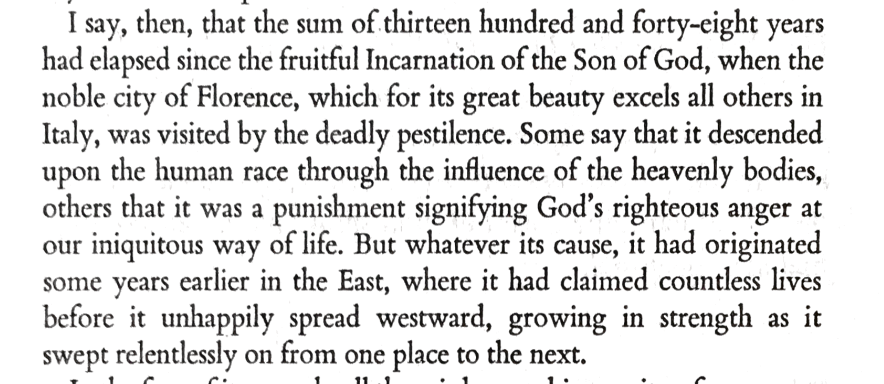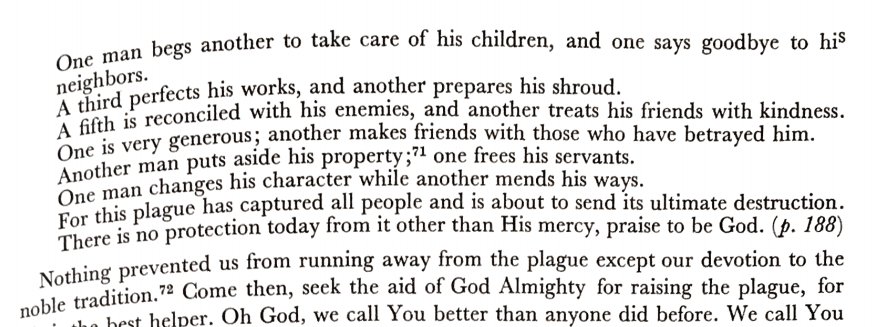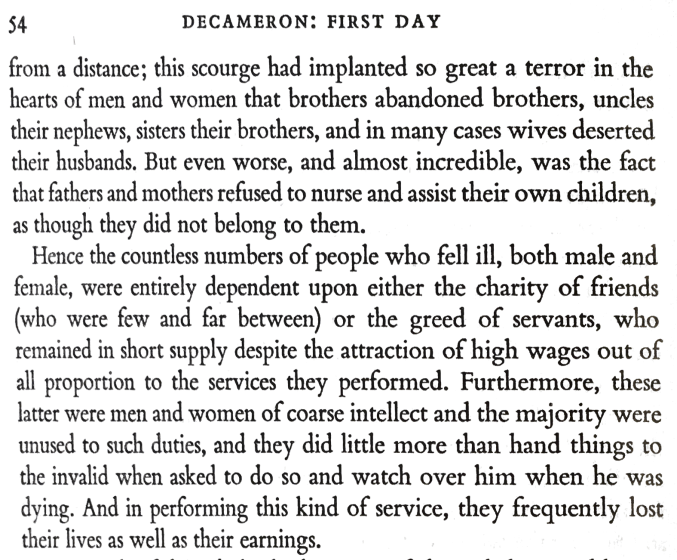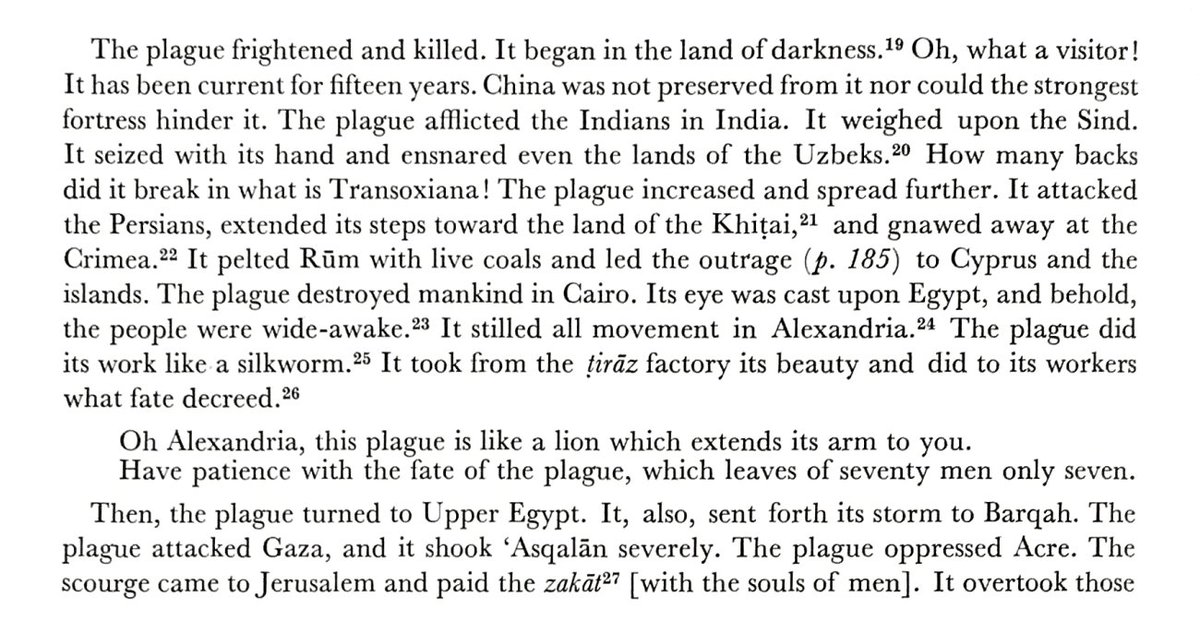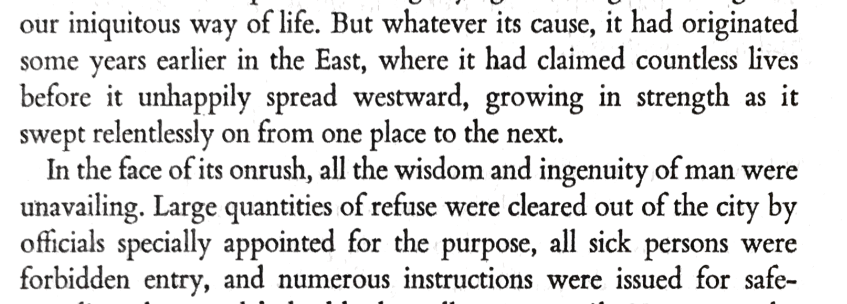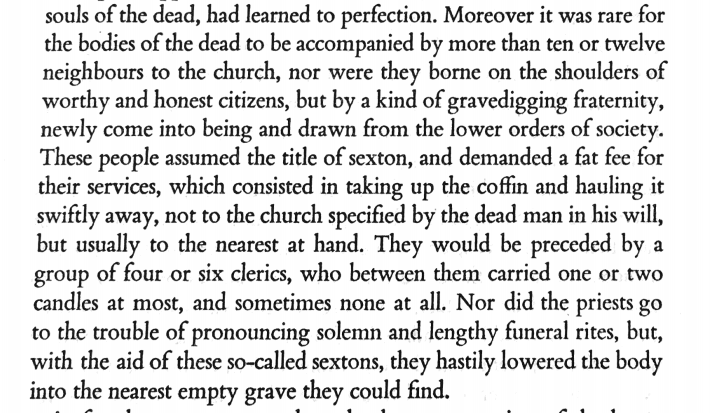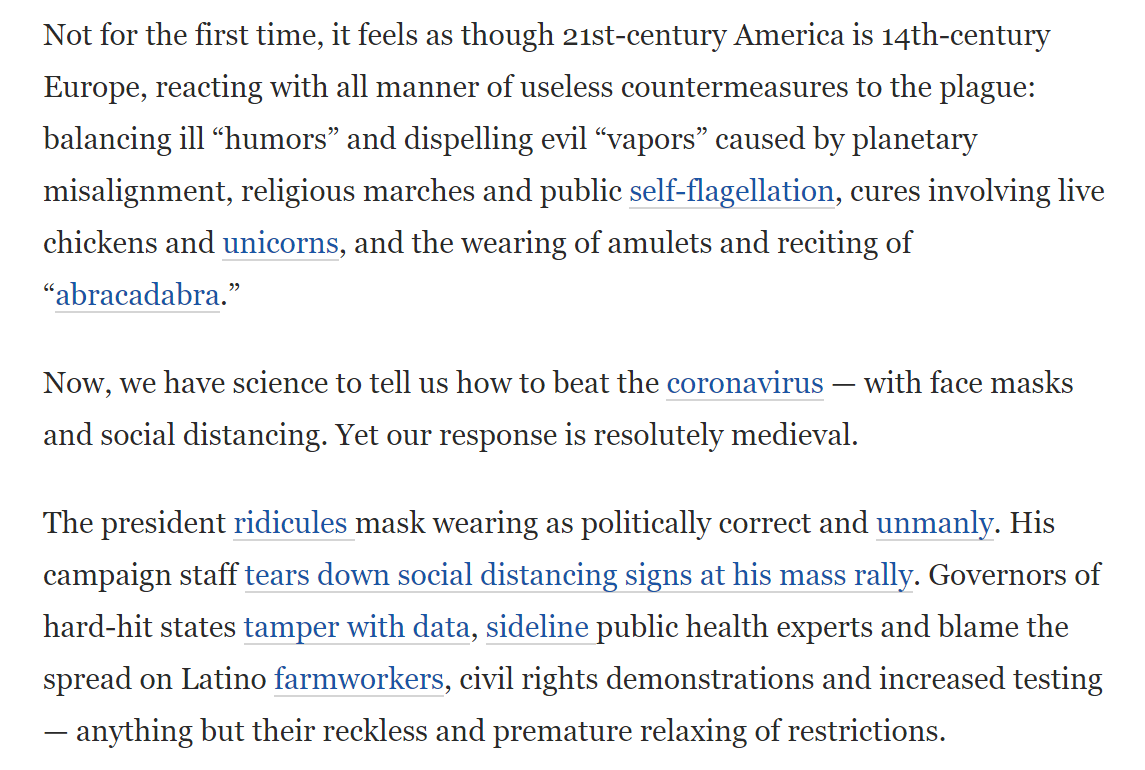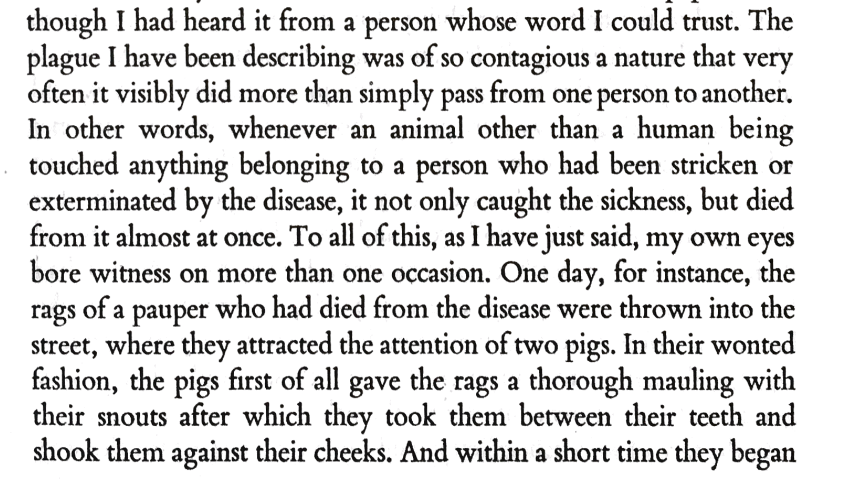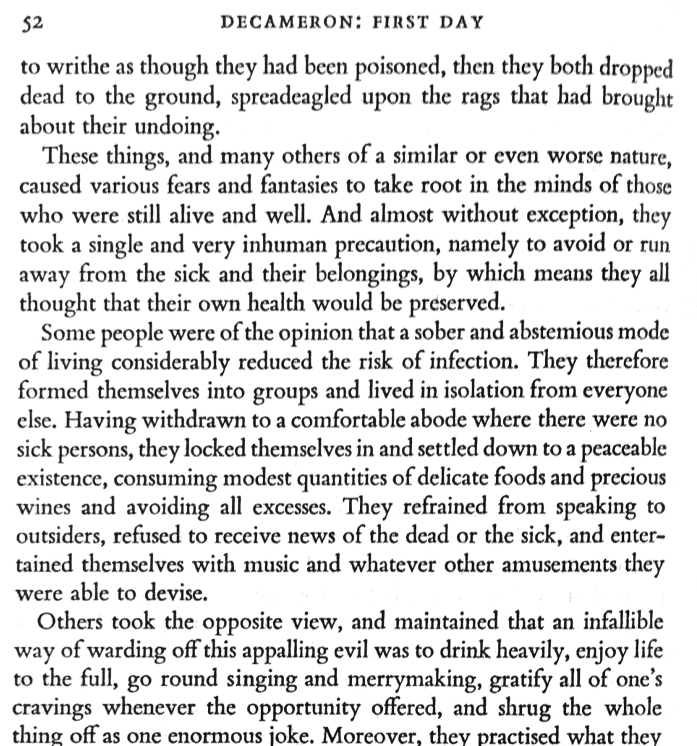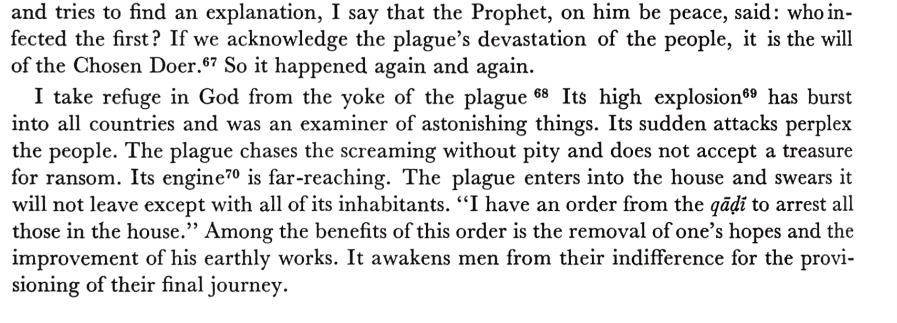There& #39;s a new Op-Ed about how "medieval" America& #39;s response to the plague is. I& #39;m sure #MedievalTwitter has thoughts, but, since my Global Medieval Lit class happens to have been reading plague narratives, lemme just say that there was not a single "medieval" response. 1/20
My class read Boccaccio& #39;s introduction to the Decameron this week (about the Plague), & they read Ibn al-Wardi& #39;s Risalah (also about the Plague) two weeks ago. Here& #39;s a quick thread on the two texts & on differing medieval Christian & Muslim responses to plague. 2/20
Al-Wardi finished his text shortly before his death on March 18th, 1349, the same year Boccaccio is believed to have begun the Decameron. The Decameron was a collection of short stories intended to block out thoughts of the plague, while Al-Wardi wrote only about the plague. 3/20
Boccaccio& #39;s account presents the plague in Florence and centers fictional characters experiencing it. al-Wardi describes the plague& #39;s journey from China to Syria and beyond. He *does* describe the experience in Aleppo but not as much. 4/20
As Michael Dols has pointed out in his account of comparative Christian and Muslim responses to the plague, Christians saw it as a contagion sent by God and often fled from it, while Muslims saw it as a curse sent by God and remained in place. Boccaccio and Al-Wardi show this. 5
Dols argues that Muslims saw it as a martyrdom, while Christians saw it as a punishment for sin.
(these are, ofc, generalizations and many many exceptions occur, such as Andalusian scholar Ibn al-Khatib, who argued the plague was contagious) 6/20
(these are, ofc, generalizations and many many exceptions occur, such as Andalusian scholar Ibn al-Khatib, who argued the plague was contagious) 6/20
Importantly, Muslim societies did not blame minorities for the plague, and did not practice the violent atrocities that Christians committed when they massacred Jewish communities during the plague. Instead, Muslim communities practiced communal, interfaith prayer. 7/20
Al-Wardi describes clearly that Muslims and others living in Syria did not flee, and that they stayed bc of their "noble tradition" of belief. Boccaccio states that many fled "callously" if they could (including the main characters of his story!). 8/20
Al-Wardi states that the plague is a martyrdom for Muslims and not an infection. He also, somewhat contradictorily, suggests it& #39;s a punishment from God. He doesn& #39;t see it as an apocalypse but as something that had happened "again and again" (a common Muslim claim, as Dols says)
Boccaccio& #39;s narrator is a little more agnostic about the plague, stating that opinions on its cause differ. 10/20
For me, the most dramatic difference between the two accounts is their description of what happens to society. Both recount horrors and uncountable dead. Yet Boccaccio describes social collapse, while Al-Wardi does not 11/20
Al-Wardi states that the plague brought Syrians together and that they made amends for their bad deeds and cared for their neighbors. Boccaccio recounts myriad reactions to the plague but his accounts of many people abandoning their sick families are horrifying. 12/20
Al-Wardi also spends a great deal of time describing the course of the plague throughout various lands, and shows incredible empathy for the countries it laid waste. Boccaccio mentions its origins only briefly and focuses in on Florence, making his story perhaps more immediate.
Weirdly, one point of commonality for them is that funeral workers and grave-diggers took advantage of the plague to make money, while acting callously towards the grieving people who hired them. 14/20
Teaching these texts in a pandemic has been eye-opening, and I know we are reading them differently than we ever would. I like them for different things: Al-Wardi& #39;s beautiful literary style and his humanity, Boccaccio& #39;s immediacy and on-the-ground perspective. 15/20
That op-ed on COVID and the medieval American response? It DOES localize itself to medieval Europe& #39;s response, claiming that "medieval" basically means superstitious and anti-science. 16/20
Of course the idea that Middle Ages (in western Europe or elsewhere) were "anti-science" is ridiculous. Boccaccio& #39;s own descriptions emphasize the plague as an infectious disease and he describes various opinions on how to prevent it, none involving "magic." 17/20
But, as @ISASaxonists reminds us, perhaps the most "medieval" thing about the modern response to COVID is racial discrimination and violence, as well as the unequal burden of death on marginalized communities, especially black and brown ones. 18/20 https://medium.com/@mrambaranolm/black-death-matters-a-modern-take-on-a-medieval-pandemic-8b1cf4062d9e">https://medium.com/@mrambara...

 Read on Twitter
Read on Twitter
